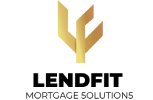Advantages & Disadvantages to a Reverse Mortgage

A reverse mortgage is a special loan for homeowners 55 +, that lets them borrow against the value of their home, without having to sell.
Unlike a typical home equity loan, reverse mortgages do not have to be repaid during the life of the homeowner, thereby protecting a homeowner from the possibility of foreclosure. The agreement is a “life-term” loan, which is a loan for either the lifetime(s) of the owners or the life of the ownership of the home. In addition, the income is tax free, so it will not affect other retirement benefits.
The lender will pay the proceeds of the reverse mortgage to the homeowner as a lump sum or as periodic payments and are not considered taxable income. Borrowing minimums and maximums vary between providers and are based on a percentage of the value of your home.
The amount you can borrow through a reverse mortgage varies dramatically based on geographic location, the type of housing you own, your age and gender, and the amount of your current debt.
Interest will accrue at a set mortgage interest rate, but will not be required to be paid as long as the homeowner resides in the home. The homeowner retains the right to repay mortgage payments.
Provided property taxes are paid, the homeowner will have the right to reside in the home for life.
The reverse mortgage will be repaid upon the sale of the property by the homeowner or upon the death of the homeowner, unless it is repaid previously.
If the property is sold for more than the mortgage balance, the heirs of the homeowner receive the difference. If the home sells for less than the mortgage balance, the heirs owe nothing to the mortgage company. 
Advantages:
- Payments from a reverse mortgage are tax-free income, so income-tested benefits such as OAS and GIS will not be affected.
- Reverse mortgages do not have to be repaid until you sell your home or you or your surviving partner pass away.
- The freedom to eliminate monthly payments can be a benefit for stretched budgets.
- You can repay the loan at any time.
- If the investment market takes a downturn, a reverse mortgage could fill the gap until your investments stabilize or reach maturity.
- The amount you owe can never exceed the value of your property.
- You and your beneficiaries will not be responsible for any shortfall if interest rates increase and housing values drop.
- Depending on the provider, funds can be received as a lump sum, regular payments or a combination of lump sum and regular payments.
- Interest paid on the reverse mortgage is tax deductible if the proceeds were used to earn investment income (interest or dividends).
Disadvantages:
- While your home may continue to appreciate in value and offset some of the interest costs and loss of equity, interest will rapidly accumulate on the amount you borrow.
- Providers market the benefit of using a reverse mortgage to increase savings by shifting wealth from your home to your investments. This form of leverage adds risk.
- Due to start-up fees and higher rates of interest, reverse mortgages are more costly than conventional lines of credit or mortgages. Early payment of all or a portion of the amount borrowed could subject you to prepayment penalties. Borrowing against your home will impact the amount available to pass on to your beneficiaries.
- There are limited options as only two companies in Canada offer reverse mortgages: Canadian Home Income Plan (CHIP) and Seniors Money Canada.
- Reverse Mortgages can be an expensive way to access some of the value built up in your home. Start-up fees can be significant and interest rates on reverse mortgages are much higher than standard mortgage rates. Start-up fees depend on options selected but typically include an application fee, home appraisal fee, and costs for independent legal advice. Fees can easily reach $2000 to $2500 which is deducted from the principle received.
- The amount you can borrow through a reverse mortgage varies dramatically based on geographic location, the type of housing you own, your age and gender, and the amount of your current debt. A reverse mortgage may not be an option depending on these circumstances.



